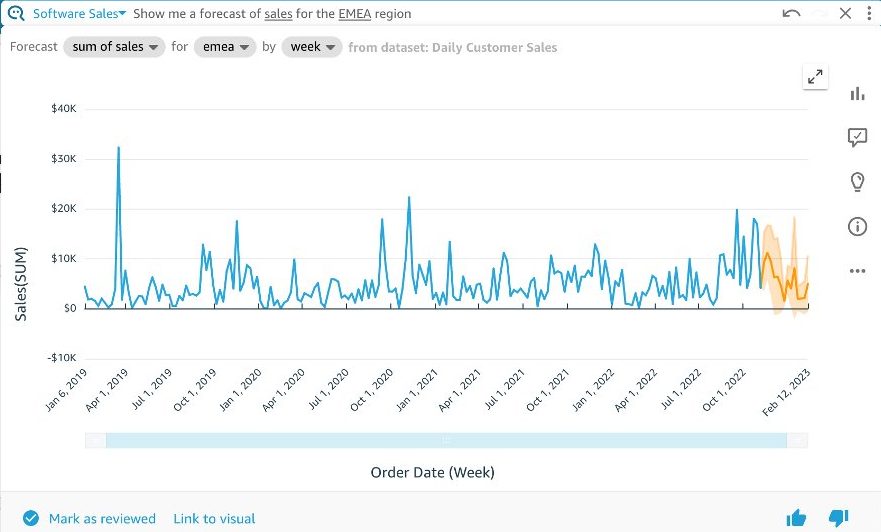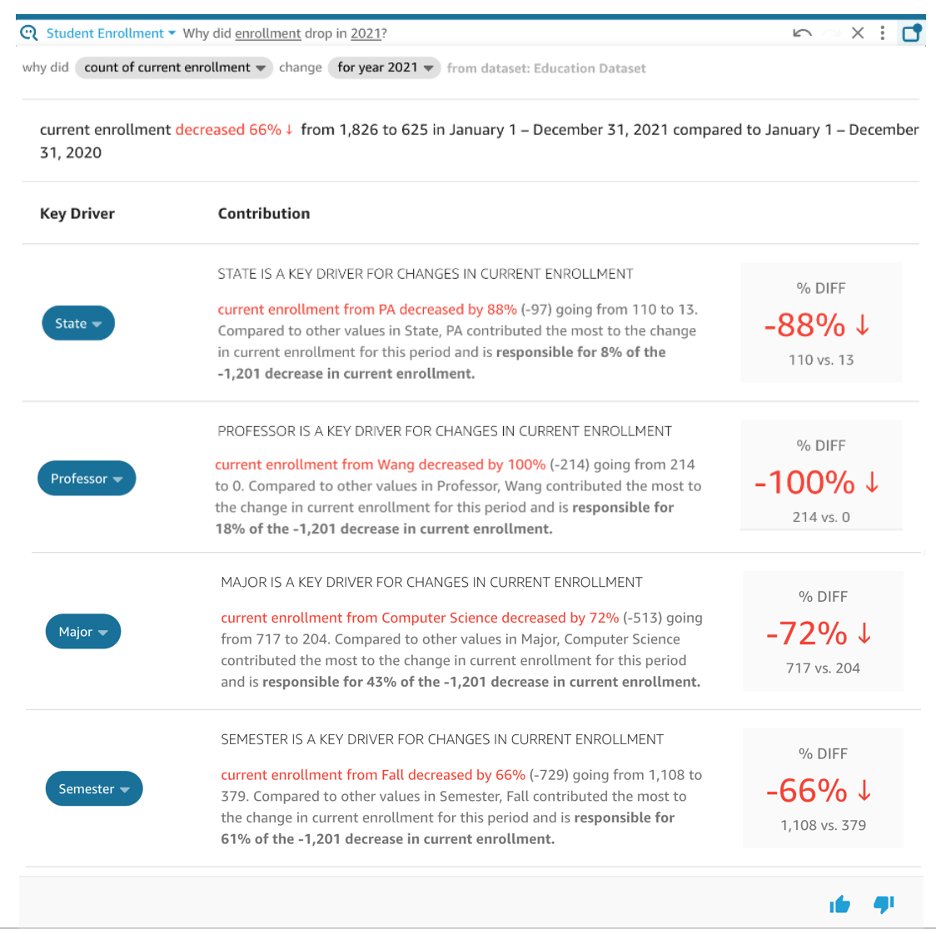Amazon Web Services (AWS) has announced some notable new natural language querying capabilities that enable non-analysts to forecast future business outcomes.
By way of a quick recap, AWS first introduced its QuickSight business intelligence service back in 2015, allowing customers to visualize their data through dashboards and reports without requiring the technical prowess of a developer. Fast-forward to 2020, and AWS introduced natural language queries to the mix via QuickSight Q, enabling users to find answers simply by typing plain-English questions into a search bar, such as “show me this month’s sales by segment.”
Todays’ announcement builds on that, by serving answers to future-gazing questions.
ML-powered forecasting with Q, as AWS CEO Adam Selipsky referred to the new feature on stage at AWS re:Invent today, allows users to view business performance forecasts without involving any analysts or data scientists. All they have to do is enter “forecast” or “show me a forecast” into the search bar, followed by up to three metrics (e.g. “sales”), and Q will deliver the appropriate visualizations for that query.
On top of that, users can include filters, for example if they want to see sales for a specific region over a specific timeframe.

QuickSight Q: Forecasts with filters
Additionally, QuickSight Q will also now support natural language “why” questions, allowing non-analysts to drill down into the data and figure out what factors led to a particular outcome.
For example, if a graph shows that enrolment in a course dropped, the user might also want to know why it dropped. So they would start such a query with the word “why,” and then follow it up with a metric and a timeframe. In this case, the question could be: “Why did enrollment drop in 2021“?

QuickSight Q: “Why” questions
Both forecasting and “why” questions are available to users from today.
AWS now supports natural language forecasting queries in QuickSight Q by Paul Sawers originally published on TechCrunch
DUOS






